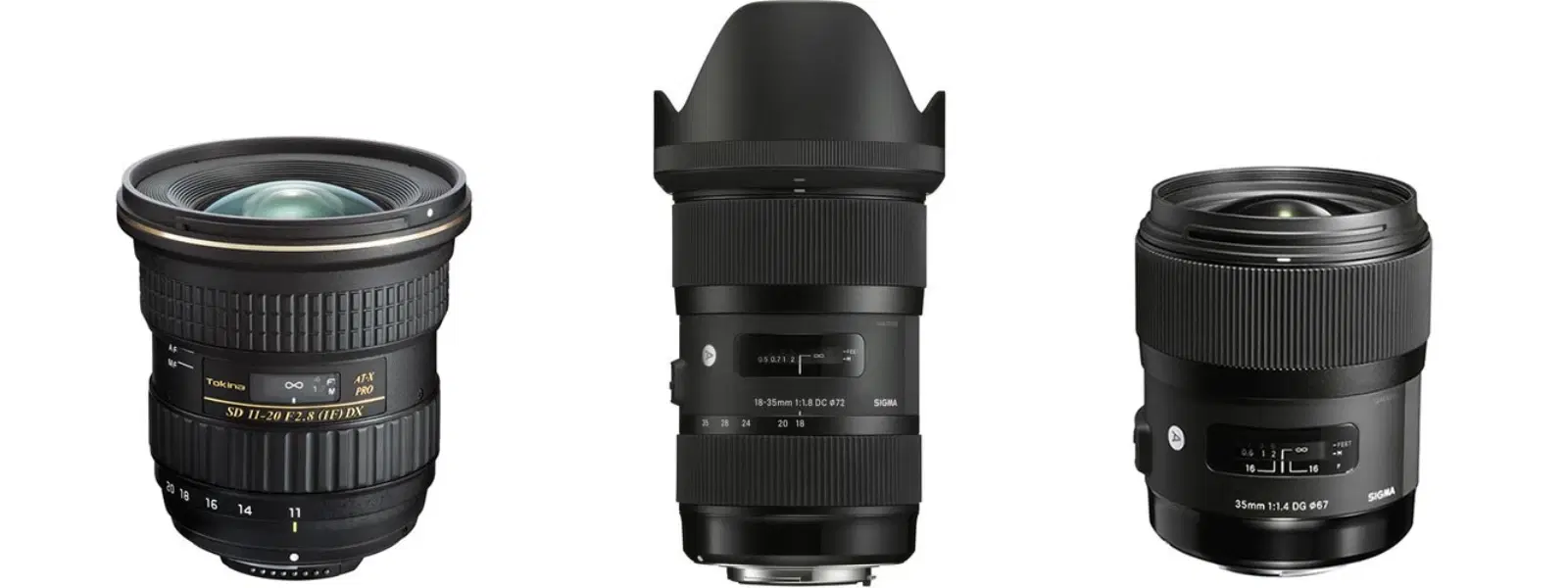
Consumer Electronics
•03 min read
Imagine capturing the majesty of the Milky Way or the brilliance of a star-filled sky with unparalleled clarity. Astrophotography demands specialised equipment that can harness the low-light beauty of the cosmos, and the right astrophotography lens can make all the difference. In this guide, we explore the seven best options tailored to enhance your night sky photography—whether you’re aiming for expansive wide-angle shots of the Milky Way or detailed, zoomed-in images of distant stars.
The secret to shooting stellar images lies in having a lens with a fast aperture (f/2.8 or lower) to excel in low-light conditions, combined with minimal distortion and coma for crisp star depictions. Wide-angle capabilities are essential when capturing expansive nightscapes, and understanding the benefits of prime versus zoom lenses helps you identify the best lens for astrophotography.
One key aspect is the role of focal length in framing stars and landscapes. A well-matched lens enhances the clarity of details and renders accurate, vibrant colours, ensuring your images reflect the true beauty of the night sky. Whether you’re a beginner or a seasoned enthusiast, balancing these features is crucial for getting that perfect shot.
This lens stands out with its ultra-wide focal length and a fast aperture that excels under low-light conditions. It is ideal for capturing the sprawling beauty of the Milky Way and vast landscape astrophotography.
Offering a versatile zoom range and excellent sharpness, this lens is perfect for capturing detailed nightscapes and star trails. Its quality ensures that every detail of the night sky is articulated with precision.
Engineered for expansive ultra-wide-angle coverage, this lens not only delivers a durable build but also highlights the finer intricacies of celestial bodies, making it a superb choice for those capturing breathtaking starry skies.
Notable for its image stabilisation and versatile zoom range, this lens is best suited for Milky Way photography. It minimises distortion and ensures every shot of the cosmos remains vibrant and true to life.
This affordable option doesn’t compromise on quality. With decent optical performance and a wide-angle perspective, it is an excellent entry-level choice for those stepping into the world of astrophotography.
With a fast aperture and superior image quality, this prime lens is exceptional for low-light photography. Its performance makes it a reliable choice for capturing the true colours and details of the night sky.
Designed specifically for crop-sensor cameras, this lens features a compact design and wide aperture. It is tailored perfectly to the needs of astrophotographers using APS-C cameras.
Understanding the sensor size of your camera is essential. A lens that works well on a full-frame sensor may behave differently on an APS-C, impacting your overall framing and composition when capturing starry vistas.
A fast aperture is critical to enhancing low-light performance. Lenses with f/2.8 or lower allow more light to hit the sensor, ensuring that your astrophotography captures are bright, clear, and filled with intricate details.
Investing in astrophotography equipment requires a balance. While premium lenses may offer advanced features, there are affordable options available for beginners that still deliver impressive results. The key is to focus on fast apertures and optical performance.
Insight Corner: The Importance of Lens Coatings for Astrophotography
Did you know? High-quality lens coatings can reduce glare and chromatic aberrations, ensuring your star photos are crisp and vibrant. Always opt for lenses with advanced coating technologies to maximise your astrophotography results.
Astrophotography typically involves using wide-angle and prime lenses with fast apertures (f/2.8 or lower) to achieve clear, detailed images under low light.
Both are excellent; however, a 14mm lens offers a wider field of view for capturing expansive nightscapes, while a 24mm lens provides more detail for specific segments of the night sky.
While it is possible, lenses optimised for low-light conditions with fast apertures and minimal distortion are highly recommended for the best outcomes.
A lens featuring a fast aperture (f/2.8 or lower) and a focal length between 14mm and 35mm is ideal for capturing the grand vistas of the night sky.
The Rokinon/Samyang 14mm f/2.8 is widely recognised as one of the most budget-friendly and effective choices for beginners in astrophotography.
Astrophotography lenses are the cornerstone of capturing breathtaking images of the night sky. From wide-angle options like the Sigma 14mm f/1.8 DG HSM Art to budget-friendly picks such as the Rokinon 14mm f/2.8, there is a lens for every type of astrophotographer. Prioritising fast apertures, low distortion, and compatibility with your camera system, you can confidently capture detailed images of the Milky Way, star trails, and more. At Tata Neu, we believe in providing seamless shopping experiences with genuine value. Every purchase can earn you NeuCoins rewards, ensuring that your journey to master astrophotography is both rewarding and inspiring. Explore the exciting possibilities within astrophotography and elevate your night sky captures with the perfect lens.